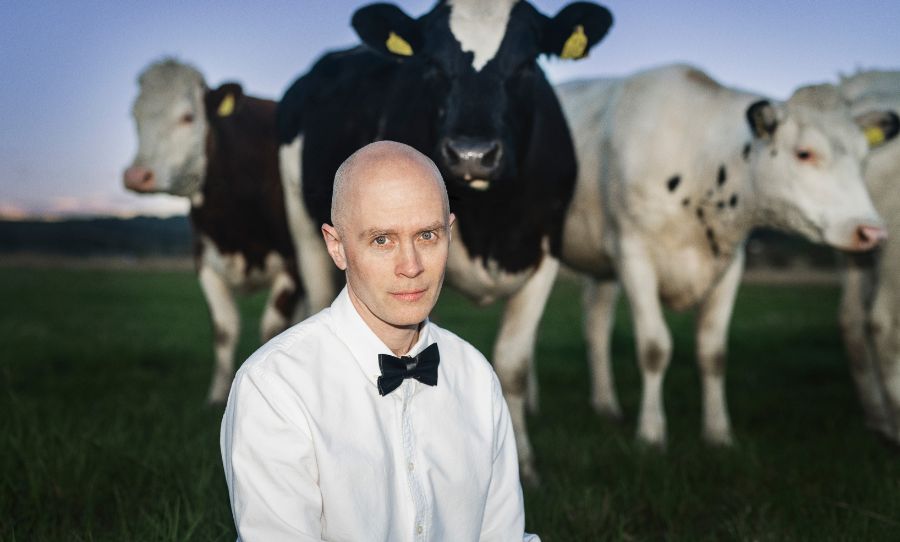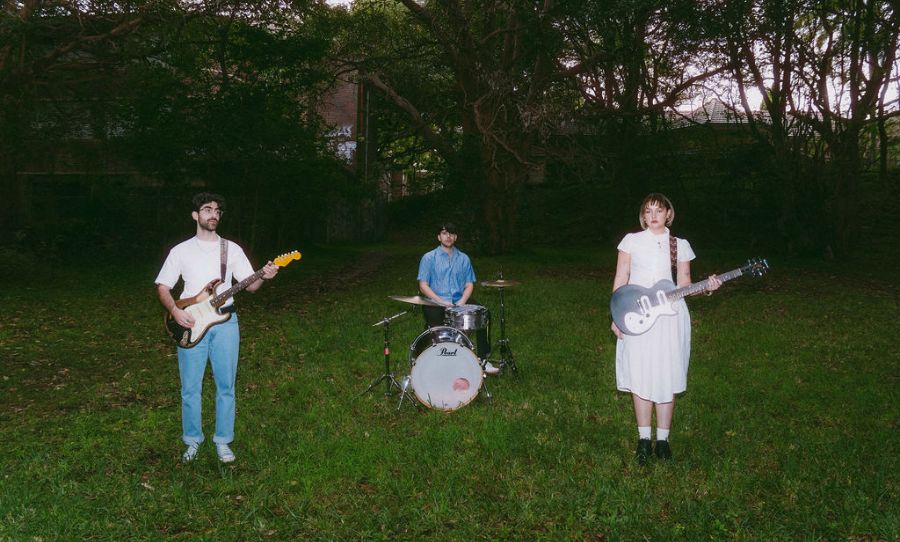Co-run by Jon and Anna Ashley, Bondi Effects has quickly cemented a place for itself at the crux of the boutique pedal market. After jumping from DIY robotics to tinkering with custom pedals, Jon’s first commercial foray was the innovative Sick As Overdrive in 2013.
Drawing widespread praise for its sound, craftsmanship and ingenuity, the Sick As sparked a surprising amount of momentum for the burgeoning brand. After relocating to Australia from the US in 2016, the pair’s growing family of pedals have found their way into a number of notable Aussie rigs including those of Matt Corby and Gang of Youths.
Looking to learn a little more of all things pedal, we caught up with Jon to discuss how amateur robotics turned him onto pedals, tips for kicking off a boutique business and the virtue of maintaining a hands-on operation. We also were allowed a peek into their Sydney workshop to take some snaps.
Bondi Effects have built a worldwide cult following for their boutique pedals, including their flagship Sick As overdrive, as well as their take on a Tubescreamer, the Del Mar overdrive, and the flawlessly transparent 2026 compressor. We caught up with one half of Bondi Effects, Jon Ashley, to talk shop about their roots and the virtue of maintaining a hands-on operation.
ENMORE AUDIO: What initially drew you into music? How did it all get started?
JON: I guess I started playing guitar around 15 or so and shortly after became interested in pedals. I bought a couple of pedals, but I couldn’t really afford very much so I got into building my own. I had done robotics before as a hobby and pedals are actually a lot easier! When I opened them up they were already familiar to me, so I just started mucking around. After a while, I started making stuff for friends.
ENMORE AUDIO: Going back a little bit further, what got you into guitar?
JON: So this is interesting, I grew up in a family with fundamentalist missionary parents. I wasn’t allowed to listen to any music at all! But later my parents split up and I got away with a little more. I’d also gotten away with playing a little guitar in a church ensemble, that was pretty risqué for me at the time (laughs).

ENMORE AUDIO: How did you branch out into the business side of things?
JON: I started trying to come up with my own designs. I had made stuff DIY for ages, but then I had an idea for a pedal that would be cool and that would become the Sick As. It was kind of combining a couple of ideas I had from other pedals and using them in my own way. A good way to put it is that most overdrive pedals, are modified Tubescreamers, but the Klon Centaur, which was and probably still is the ultimate overdrive pedal, is largely left alone, because people want the original sound. Originals go for something like $2000. I could only think of about one other company who were doing a modified Klon, so I saw an opportunity for us to do something cool. So that’s how the Sick As came about, in a way it’s my take on the Klon.
ENMORE AUDIO: Were you expecting such a strong reaction?
JON: No not all. I’m kinda shocked that I’m still doing it, we’ve been so lucky. Basically, I made the first prototype and I didn’t know if it was any good, I was 18 at the time. I’ve never been a really good guitar player, that’s why I’m on the tech side of things. But anyway Gearmandude, the YouTube demoer, worked at my local guitar store so I took it in for him to see and see what he thought of it. He took it home and made a YouTube demo for it and that’s kinda how it all got going. I was living in the States at this time and there it doesn’t take a lot to make the same amount of money you earn working an average day job, so I only had to sell around ten pedals a month to quit my job. And that’s what we did and it kinda just took off from there.
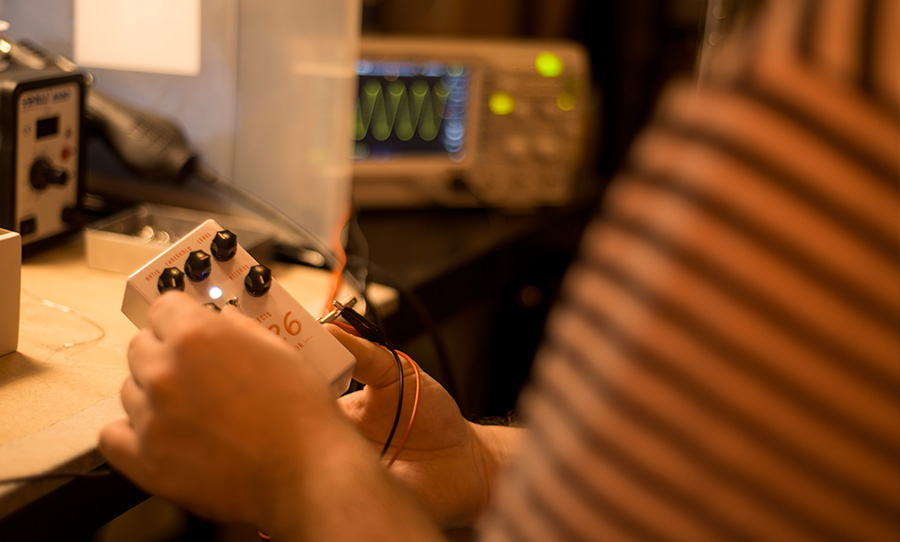
ENMORE AUDIO: You were initially in the US, but now you’re operating Down Under?
JON: I actually grew up in Sydney. So calling it Bondi Effects was kind of planning ahead a little bit.
ENMORE AUDIO: Recently I was having a chat to Ben Shaw from Pedal Empire (also a big fan of your work). His view was that in Australia, opposed to somewhere like the US, it’s tougher for people making boutique pedals. His complaint was that there is less willingness from major retailers to shine a spotlight on smaller brands. Is this something you have experienced?
JON: We’re a bit different because we’ve been primarily selling direct. We do sell through stores, but since we’ve moved [to Australia], we rely on selling direct to make enough to keep going. It is tougher in that regard. Even in the States though we would never have sold to Guitar Centre, (which is sort of like the Allans-Billy Hyde of the States). We wouldn’t like to sell with those stores, but we like working with stores like Pedal Empire and Deluxe Guitars in Melbourne.
ENMORE AUDIO: Looking at it from the perspective of someone who might want to start putting together their own pedals, is aiming for those bigger retailers worthwhile or is direct the best way to go?
JON: Honestly for a long time we were looking at getting into those bigger stores. But it just didn’t work. You make half the money when you do that way. Sure you can move a lot of volume, but for brands like us, it doesn’t really fit with our ethos. JHS Pedals and Walrus Audio are great brands which are doing that, they’re focused on the big distribution model. If you can produce enough units that’s good enough, but if you’re just two people in a living room it might not be the best fit. There are pros and cons to both.
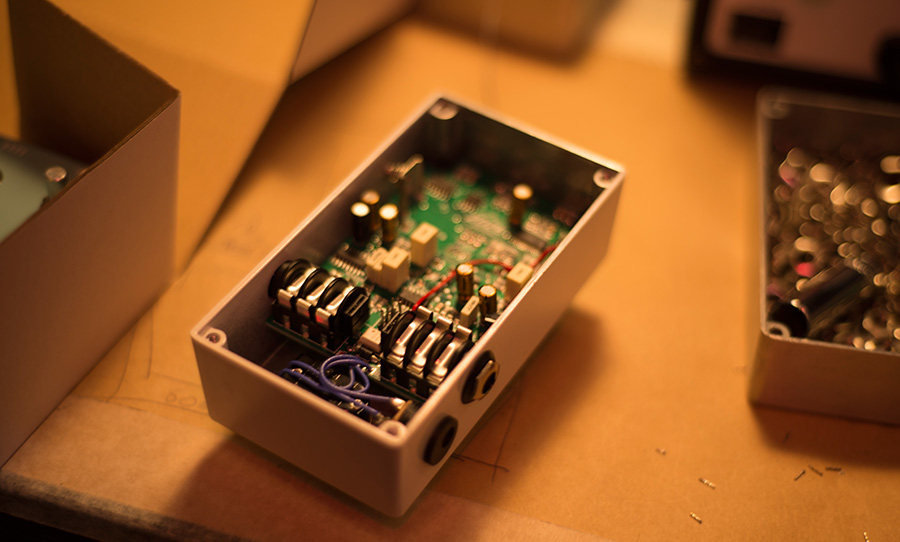
ENMORE AUDIO: So you’re more about building your own niche market?
JON: Well firstly I want to keep myself employed (laughs), but I also feel I can do a better thing keeping it hands on. I model us after Lovepedal or AnalogMan, who are both boutique guys that keep it small and direct. I feel we’re going to do things better if we do that way. The fact of it is that if you have a larger operation, like a brand who I really respect called EarthQuaker, you have to have a lot of employees. But if you do that you have to keep expanding. One advantage of that would be being able to provide jobs for people, but for us don’t think we could maintain our expected level of quality.
ENMORE AUDIO: So it’s a fine balance…
JON: You have to find the right balance of margins, Australia is tougher for that too because labour costs are higher.
ENMORE AUDIO: It sounds like a lot of other aspects of the music industry, things like signing to a major label, touring overseas or moving gigs to bigger venues. Scaling up isn’t always better.
JON: Well you look at any pedal company, generally out of the gate they’re not going to go with distributors. They’re more likely to be doing a kick-starter campaign. It doesn’t make sense unless you’re making a large volume and you’re happy with the margins that you do through those channels. We took on dealers like that early on because I was flattered. I thought it would be giving us legitimacy; I wasn’t that confident starting out. Ultimately it proved to be a bit of a terrible decision!
ENMORE AUDIO: What advice can you give someone going down a similar path starting out?
JON: Be more confident than me! Know what you’re worth and don’t be afraid stand behind your product. But at the same time don’t rush it, take it easy. If you have something good people will come to you, that’s definitely been the case with us.
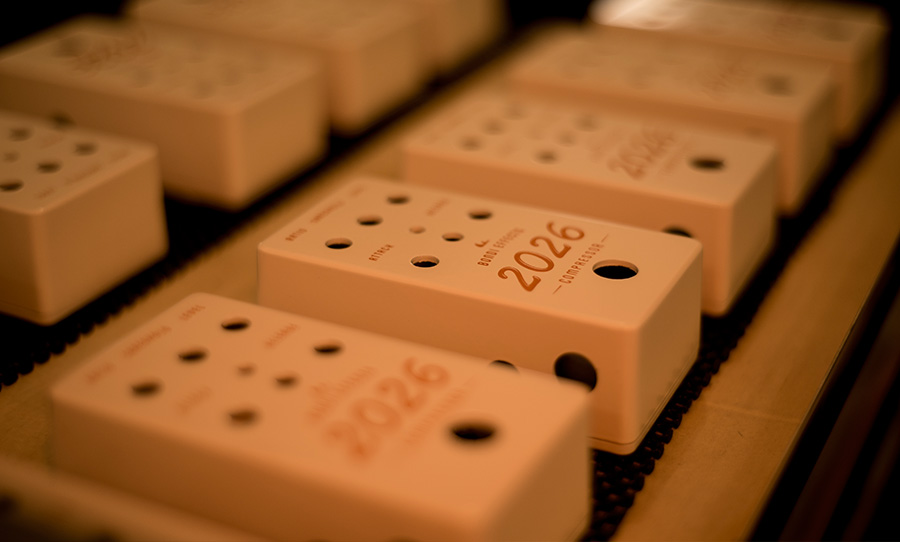
ENMORE AUDIO: Building off of the success of the Sick As, you’ve also gone on to release the Del Mar Overdrive and the 2026 Compressor. What are you currently working on?
JON: I’ve gotten into chorus pedals. We’re about halfway with a new one so I think that’s what will be next for us. We just released the 2026 Compressor which took about two years for us to finish, so hopefully, the chorus doesn’t take that long!
You can check out the full range from Bondi Effects on their website.

